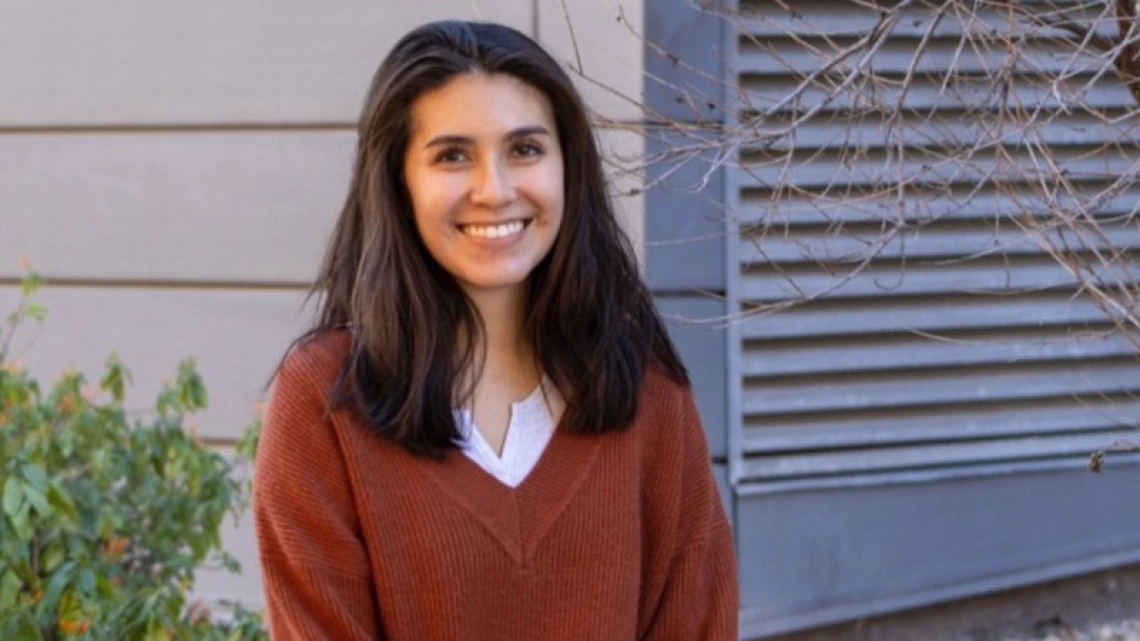PhD Student Spotlight: Marissa Trujillo

Degree: PhD in Pharmaceutical Sciences
Marissa Trujillo joined the R. Ken Coit College of Pharmacy through Arizona Biological & Biomedical Sciences (ABBS) in 2019. She began working in 2020 with the Galligan Lab under James Galligan, PhD, and has focused her studies on cellular metabolism and its impact on the generation of post-translational modifications. She earned a BS in Biochemistry from the University of Colorado Springs in 2019.
In October, Trujillo had the opportunity to attend the 3rd Metabolism in Health and Disease Conference in St. Julians, Malta. There were more than 60 event attendees, comprised of graduate students, post-docs, and invited speakers, all there to gain a more integrated understanding of how metabolism impacts health and disease. Key sessions served as a space to bring together interdisciplinary researchers working on immunity, metabolism, cancer, stem cells, neurobiology, and host-microbe interactions, with a common goal of moving research forward. Trujillo presented during the event on one of her current projects that focuses on glyoxalase 1, an enzyme, and its overall role in adipogenesis and metabolism.
In November she completed her Final Oral Defense for her PhD, titled Evaluating the role of the glyoxalase cycle in metabolic disease. Her dissertation’s research focus was the glyoxalase cycle, a metabolic pathway implicated in different disease states including cancer and diabetes, which she also studied with the Galligan lab. In 2025, she plans to begin a post-doc position with the University of Utah, where she will continue studying cell metabolism. Below, she gives a glimpse into her dissertation process and some advice on attending conferences for current PhD candidates and undergraduates.
Q & A
How did you select your dissertation topic?
- Dr. Galligan has general projects when students do a lab rotation. It is a requirement for students to then develop an independent project to become a PhD candidate. This proposal is usually related to the initial project worked on when you first join the lab.
How long did it take you to complete your dissertation? Were there any challenges that you had to overcome?
- Technically it took 5 years. But to actually write it took about 3 weeks. Still generating data the week it was due was stressful to say the least. Overall, there were constant challenges, like failed experiments and broken instruments, but that’s just the game of science and research.
How do you plan to apply the knowledge you gained from this experience in your studies or future career?
- I will be continuing the study of cellular metabolism at my post-doc, and I hope to stay in this field for the remainder of my career. The knowledge I have gained as well as the special training I have received on how to use mass spectrometry as a tool to study metabolism will provide me with the necessary skills for my future endeavors.
What advice would you give to other students attending a pharmacy conference or preparing an oral defense for the first time?
- Conferences are fun and are supposed to help you. It is a great time to meet new people in the field and a way to meet future employers as well. As for the defense, just remember that you are the person who knows the most about the topic that you are presenting.
What's one non-academic hobby or activity you like to do in your spare time?
I like to bake bread, specifically sourdough.
Congratulations to Trujillo for all her hard work and accomplishments! To learn more about the conference she attended, visit the Fusion Conferences website. You can read about current projects in the Galligan Lab here.

